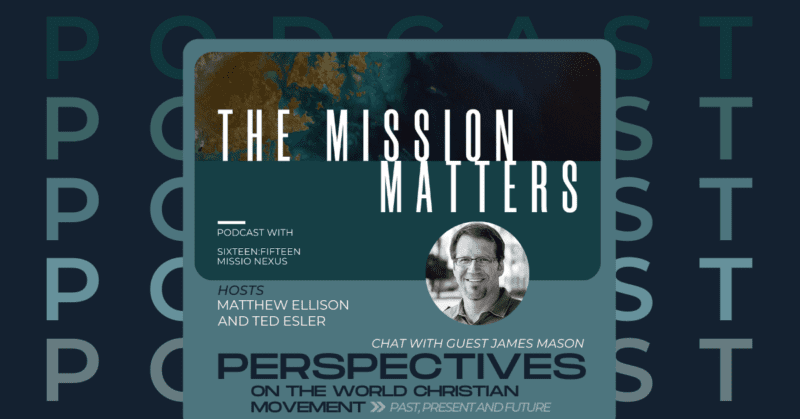Categories: Articles (EMQ), EMQ, Section
Related Articles
Welcoming the Stranger
Presenter: Matthew Soerens, US Director of Church Mobilization, World Relief Description: Refugee and immigration issues have dominated headlines globally recently. While many American Christians view these…
The Roles of Church and Mission in Crisis Management: Overlap? Competition? Cooperation?
Description: This webinar will look at the issues churches and missions face in responding to crises on the field. How do they cooperate and communicate…
Perspectives on the World Christian Movement: Past, Present and Future of the Perspectives Study Program
Join a conversation about the past, present, and future of the Perspectives Study Program.
How Do I Get My Pastor Engaged in Missions? – Cracking the Code
Description: It’s been said, “When it comes to missions in the church, the pastor either holds the key to the front door or holds the…
Identity, Security, and Community
By Dick Brogden Jeddah, KSA. November 2019 Synopsis: God is light and in Him there is no darkness at all (1 John 1:5). It is…




